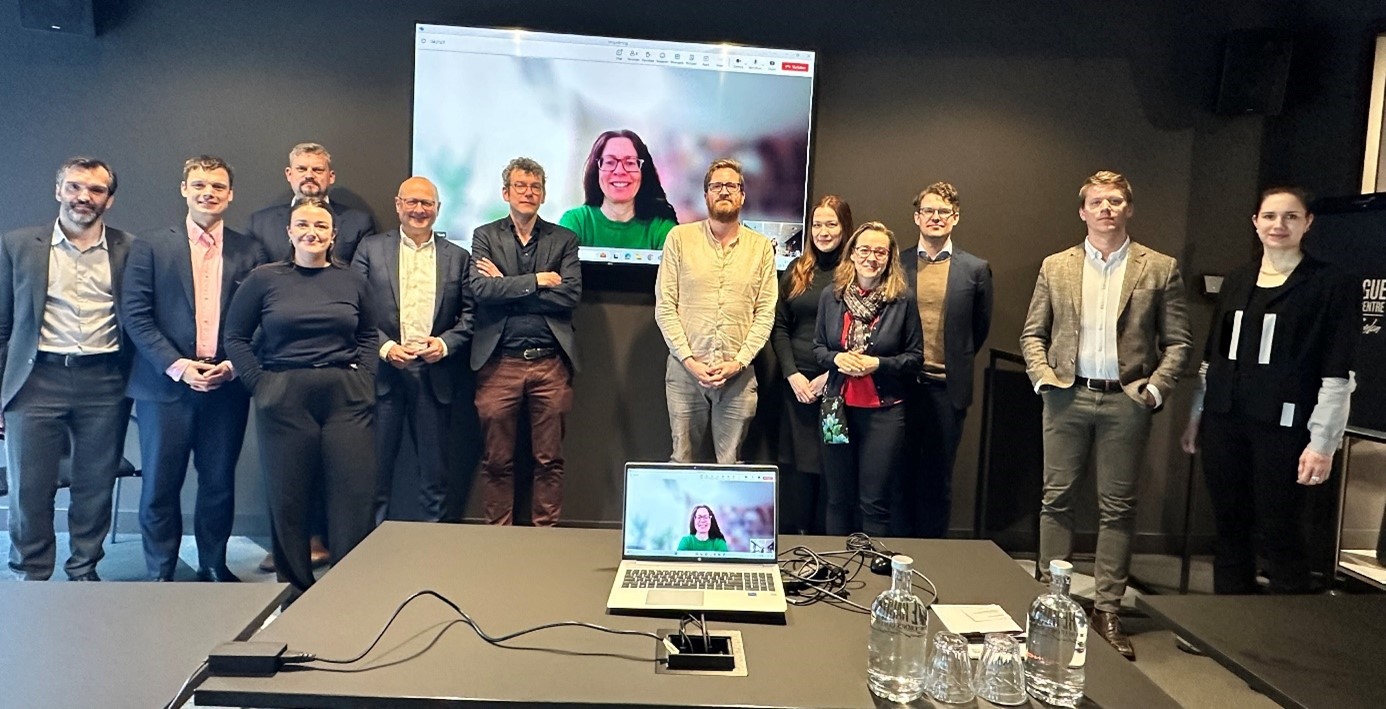The Dutch Advisory Board on Regulatory Burden (ATR) has taken over the chairmanship of RegWatchEurope (RWE) from the Swedish Better Regulation Council in 2024. The first events of the year have taken place on March 18 and 19, namely a Workshop on the Corporate Sustainability Due Diligence Directive (CS3D) and the regular Directors Meeting. We look back on two lively and interesting events to kick off our chairmanship, with many more to come.
CS3D Workshop
After months of negotiation EU member states reached an agreement on March 15 on the adoption of the Corporate Sustainability Due Diligence Directive (CS3D), albeit a watered down version as compared to the proposal that initially had been tabled by the European Commission. On March 18 ATR organised a workshop on this topical subject for the other RWE members. Moderator Hayke Veldman (ATR-Boardmember) introduced the topic, the latest developments related to CS3D, and the agenda of the day.
The morning session consisted of external speakers who gave various perspectives on voluntary and binding forms of International Responsible Business Conduct (IRBC) initiatives. The Netherlands is at the forefront of such initiatives, which can be seen as precursors to the CS3D, albeit in a voluntary mode. Sanne Weesie, who works for the Social and Economic Council of the Netherlands (SER), held a presentation about IRBC-agreements that SER has been involved with, and how they came about as an answer to unfortunate events like human rights violations and environmental pollution in certain sectors. The main idea is to prevent bad practices such as human rights violations and pollution by acting collectively on a voluntary basis. Legislation, like the CS3D, might add to this by creating a level playing field, provided some conditions are met.
Then Merel Serdijn and Miriam Geelhoed, representatives of INretail and Modint (Dutch industry organisations for respectively retail and clothing), held presentations about the cumulation of sustainability legislation. On top of the already existing legislation, the CS3D (and the CSRD) are yet to come into effect. It was pointed out that this will likely be a problem, especially for small and medium enterprises. They need clarity, templates and focus. Furthermore, Miriam highlighted the IRBC-agreement for the sustainable garment, textile and footwear supply chains as useful tools to enhance compliance with CSRD and CS3D. In the future hopefully more topics will be included in similar agreements.
After the lunchbreak the day continued with a presentation by Pawel Janowski, who works for the German National Regulatory Control Council (NKR)). Germany has the 2021 Supply Chain Act (the ‘Lieferkettengesetz’) which came into force in 2023. In some respects that Act anticipates on the CS3D. The last presentation of the day was given by Peter Sevat (ATR). Peter shared the insights from a study executed by a Dutch consultancy firm that highlights significant regulatory burden effects from introduced Dutch responsible business conduct legislation. Given the similarities between this legislation and the obligations created under CSRD and CS3D this study provides an effective warning for what is to come with this new EU legislation.
The day ended with a panel discussion in which the panel consisting of representatives of the Danish Business Regulation Forum (DBRF), the Norwegian Better Regulation Council (NBRC), and the British Regulatory Policy Committee (RPC) shared their views on pressing issues related to CS3D. In addition, the other RWE-members and speakers actively participated in the discussion which contributed to a valuable exchange of views and information.
Directors Meeting
The Directors Meeting on the following day covered many RWE topics that are in different stages of finalisation. First on the horizon are an Opinion towards the formation of the new Commission after the EP elections, and an Opinion on the value of systematic use of Implementation Workshops. A collaborative project on the GDPR (General Data Protection Regulation) which was initiated earlier, will also come to fruition. This project will draw conclusions as to the functioning of the Better Regulation in (and between) both the EU and the Member States, by means of an analysis of this major piece of legislation. Possible follow up op the CS3D Workshop of the day before was also discussed. Projects that are a bit further on the horizon are those dealing with the implementation of the CSRD (Corporate Sustainability Reporting Directive), and a possible project that takes stock of the importance of national follow up assessments to the European Impact Assessment. A different kind of project is at issue with the Regulation on organic production and labelling: this revolves around the question whether other RWE Member States face the same problems for small (mixed) retailers that ATR has recently addressed in an Advisory Opinion.

